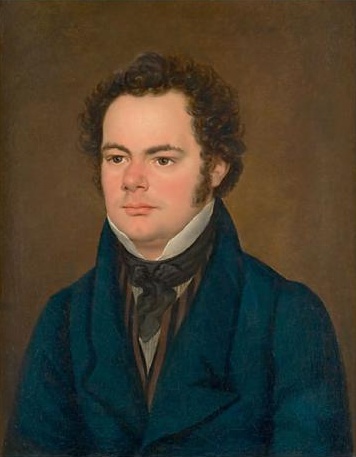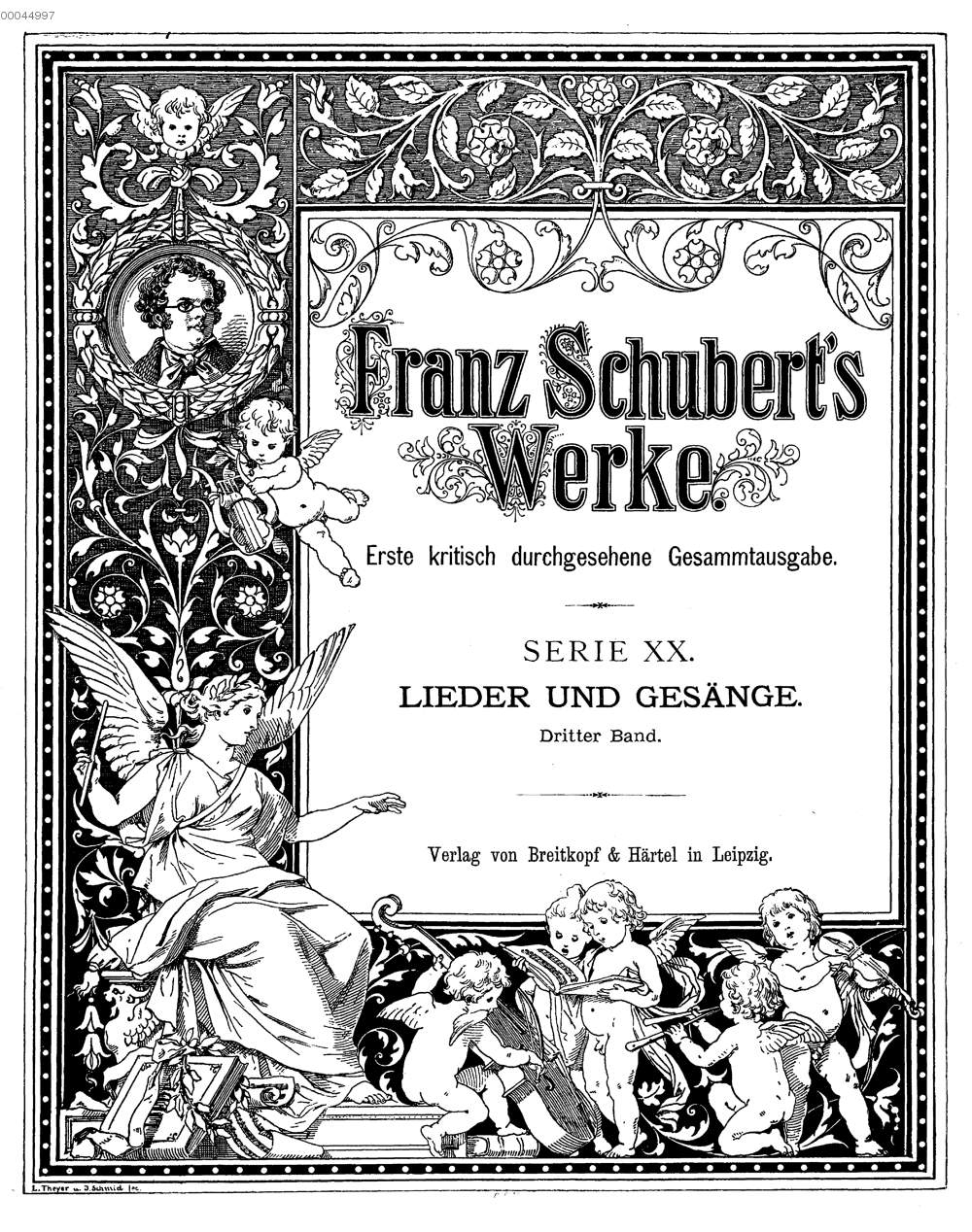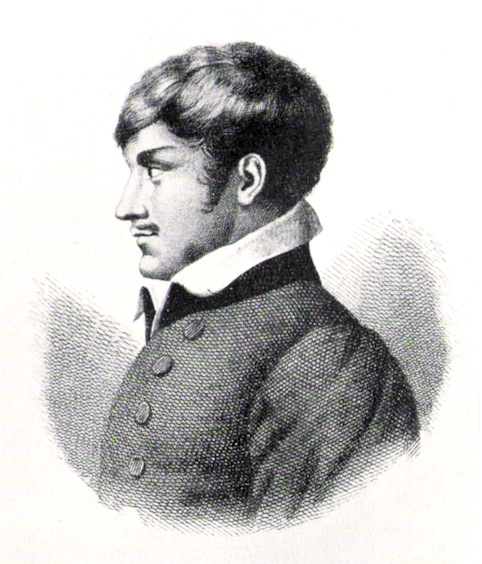|
Schubert's Song Cycles
Franz Schubert's best known song cycles, like ''Die schöne Müllerin'' and ''Winterreise'' are based on separate poems with a common theme and narrative. Other song cycles are based on consecutive excerpts of the same literary work: Schubert's "Ave Maria" is part of such a song cycle based on excerpts of the same poem, in this case by Walter Scott. When the poems of a group of songs have a common link, and are for this reason grouped under a single Deutsch number, but there is no common narrative, the collection is rather qualified as a song set than a song cycle. Some of Schubert's song cycles contain both Lieder for solo voice as well as part songs. There is, however, always a piano accompaniment. ''Don Gayseros'' D 93, Song cycle ''Don Gayseros'' for voice and piano (1815?): :: 1. "Don Gayseros I" Don Gayseros, wunderlicher, schöner Ritter':: 2. "Don Gayseros II" Nächtens klang die süße Laute'(fragment?) :: 3. "Don Gayseros III" An dem jungen Morgenhimmel'(fragment? ... [...More Info...] [...Related Items...] OR: [Wikipedia] [Google] [Baidu] |
Franz Schubert C1827
{{disambiguation ...
Franz may refer to: People * Franz (given name) * Franz (surname) Places * Franz (crater), a lunar crater * Franz, Ontario, a railway junction and unorganized town in Canada * Franz Lake, in the state of Washington, United States – see Franz Lake National Wildlife Refuge Businesses * Franz Deuticke, a scientific publishing company based in Vienna, Austria * Franz Family Bakeries, a food processing company in Portland, Oregon * Franz-porcelains, a Taiwanese brand of pottery based in San Francisco Other uses * ''Franz'' (film), a 1971 Belgian film * Franz Lisp, a dialect of the Lisp programming language See also * Frantz (other) * Franzen (other) * Frantzen (other) Frantzen or Frantzén is a surname. It may refer to: * Allen Frantzen (born 1947/48), American medievalist * Björn Frantzén (born 1977), Swedish chef and owner of the Frantzén restaurant * Jean-Pierre Frantzen (1890–1957), Luxembourgian gym ... [...More Info...] [...Related Items...] OR: [Wikipedia] [Google] [Baidu] |
Walther Dürr
Walther Dürr (27 April 1932 – 6 January 2018) was a German musicologist. He is especially known for his research of the work of Franz Schubert. From 1965 to 1997 Dürr was editor of the ''Neue Schubert-Ausgabe'', with particular responsibility for the 14 volumes of lieder."Prof. Dr. Walther Dürr" biography, photo, list of works, ''Neue Schubert-Ausgabe'' Born in Berlin, Dürr studied from 1951 musicology and German and Romance studies in Berlin and . He gained a PhD in 1956. Further studies and teaching led him to |
Otto Erich Deutsch
Otto Erich Deutsch (5 September 1883 – 23 November 1967) was an Austrian musicologist. He is known for compiling the first comprehensive catalogue of Franz Schubert's compositions, first published in 1951 in English, with a revised edition published in 1978 in German. It is from this catalogue that the ''D'' numbers used to identify Schubert's works derive. Life Deutsch was born in Vienna on 5 September 1883 in a Jewish family."Otto Deutsch" profile at the Following his studies of art history and literature in Vienna and , he worked as an assistant at the ... [...More Info...] [...Related Items...] OR: [Wikipedia] [Google] [Baidu] |
Franz Schubert's Works
Franz Schubert's Works: Complete and Authoritative Edition (german: Franz Schubert's Werke: Kritisch durchgesehene Gesammtausgabe), also known as the Collected Edition, is a late 19th-century publication of Franz Schubert's compositions.Deutsch 1951, p. xiii The publication is also known as the Alte Gesamt-Ausgabe ("the former complete edition"), abbreviated as AGA, for instance in the 1978 edition of the Deutsch catalogue, in order to distinguish it from the New Schubert Edition. Publication The twenty-two series (some in several volumes) were published from 1884 to 1897 by Breitkopf & Härtel. Eusebius Mandyczewski was one of the main editors. From 1965 Dover Publications started to reprint this edition, and later it was made available at the IMSLP website. Content I. Symphonien (Nos. 1-8) Editor: Johannes Brahms. Issued 1884. Two volumes (Symphonies 1–3; Symphonies 4–6/8–9). Reprinted: Dover Publications, 1978. II. Overtüren und Andere Orchesterwerke Editor: Joh ... [...More Info...] [...Related Items...] OR: [Wikipedia] [Google] [Baidu] |
Ernst Schulze (poet)
Ernst Conrad Friedrich Schulze (22 March 1789 – 29 June 1817) was a German Romantic poet. He was born and died in Celle. Early life and education The son of the Mayor of Celle, his mother died while he was only two years old and much of his early education was overseen by his two grandfathers, who were a Celle bookseller and a minister. Widely respected by his contemporaries in early youth, he found himself increasingly drawn into a new ''poetische Welt'' (world of poetry) in his mid-teens, showing a particular interest in folklore, fairy tales and diverse French literature. He said of himself, "I lived in a fantasy world and was on the way to becoming a complete obsessive." Despite these early Romantic daydreams, he was able to apply himself to his school work and was, at age 16, a model student. Given his upbringing, it is probably unsurprising that he initially studied theology at the Georg-August University of Göttingen from 1806. He went on to study philosophy, lit ... [...More Info...] [...Related Items...] OR: [Wikipedia] [Google] [Baidu] |
Graham Johnson (musician)
Graham Johnson OBE (born 10 July 1950) is a British classical pianist and Lieder accompanist. Biography Johnson was born in Bulawayo, Southern Rhodesia Southern Rhodesia was a landlocked self-governing British Crown colony in southern Africa, established in 1923 and consisting of British South Africa Company (BSAC) territories lying south of the Zambezi River. The region was informally kn .... His father played the piano and the saxophone. In 1967, Johnson began studies at the Royal Academy of Music (RAM), where his teachers included Harry Isaacs and John Streets. Johnson has acknowledged a 1972 live recital by Peter Pears and Benjamin Britten as key in directing his musical career ambitions towards being an accompanist. After leaving the RAM in 1972, he continued studies with Gerald Moore and Geoffrey Parsons (pianist), Geoffrey Parsons. Johnson was the official pianist at Peter Pears's first masterclasses at the Snape Maltings, which brought him into contact with ... [...More Info...] [...Related Items...] OR: [Wikipedia] [Google] [Baidu] |
Der Doppelgänger
"Der Doppelgänger" is one of the six songs from Franz Schubert's ''Schwanengesang'' that sets words by Heinrich Heine for piano and tenor voice. It was written in 1828, the year of Schubert's death. Text The title "Der Doppelgänger" is Schubert's; in Heine's ' (1827) the poem is untitled, making the ending a surprise. Heine used the spelling "Doppeltgänger". from Heine's ''Buch der Lieder''; Still ist die Nacht, es ruhen die Gassen, In diesem Hause wohnte mein Schatz; Sie hat schon längst die Stadt verlassen, Doch steht noch das Haus auf demselben Platz. Da steht auch ein Mensch und starrt in die Höhe, Und ringt die Hände, vor Schmerzensgewalt; Mir graust es, wenn ich sein Antlitz sehe, - Der Mond zeigt mir meine eigne Gestalt. Du Doppelgänger! du bleicher Geselle! Was äffst du nach mein Liebesleid, Das mich gequält auf dieser Stelle, So manche Nacht, in alter Zeit? The night is quiet, the streets are calm, In this house my beloved once lived: She has long since lef ... [...More Info...] [...Related Items...] OR: [Wikipedia] [Google] [Baidu] |
Johann Gabriel Seidl
Johann Gabriel Seidl (21 June 1804 – 18 July 1875) was an Austrian archeologist, poet, storyteller and dramatist. He wrote the lyrics to "Gott erhalte, Gott beschütze unsern Kaiser, unser Land!" This was the 1854 version of the Austrian Imperial Anthem, music by Joseph Haydn (Gott erhalte Franz den Kaiser). Born in Vienna, Johann Gabriel Seidl was the son of a lawyer and studied law himself. In 1829, he began to teach at a gymnasium in Celje, Slovenia. In 1840 he became curator at the Coin and Antiquities Museum (''Münz- und Antikenkabinett'') in Vienna. From 1856 until 1871, he was responsible for the treasury. He spent most of his life in Vienna and died there in 1875. Besides his scientific studies, Seidl published numerous poems and short stories, including the first poems by Nikolaus Lenau. Many of his poems were set to music by Franz Schubert (e.g. ''"Die Taubenpost"'' from Schwanengesang) and Carl Loewe Johann Carl Gottfried Loewe (; 30 November 1796 – 20 Apr ... [...More Info...] [...Related Items...] OR: [Wikipedia] [Google] [Baidu] |
Heinrich Heine
Christian Johann Heinrich Heine (; born Harry Heine; 13 December 1797 – 17 February 1856) was a German poet, writer and literary critic. He is best known outside Germany for his early lyric poetry, which was set to music in the form of '' Lieder'' (art songs) by composers such as Robert Schumann and Franz Schubert. Heine's later verse and prose are distinguished by their satirical wit and irony. He is considered a member of the Young Germany movement. His radical political views led to many of his works being banned by German authorities—which, however, only added to his fame. He spent the last 25 years of his life as an expatriate in Paris. Early life Childhood and youth Heine was born on 13 December 1797, in Düsseldorf, in what was then the Duchy of Berg, into a Jewish family. He was called "Harry" in childhood but became known as "Heinrich" after his conversion to Lutheranism in 1825. Heine's father, Samson Heine (1764–1828), was a textile merchant. His mother Peira ... [...More Info...] [...Related Items...] OR: [Wikipedia] [Google] [Baidu] |
Ludwig Rellstab
Heinrich Friedrich Ludwig Rellstab (13 April 179927 November 1860) was a German poet and music critic. He was born and died in Berlin. He was the son of the music publisher and composer Johann Carl Friedrich Rellstab. An able pianist, he published articles in various periodicals, including the influential liberal ''Vossische Zeitung'', and launched the music journal ''Iris im Gebiete der Tonkunst'', which was published in Berlin from 1830 to 1841. His outspoken criticism of the influence in Berlin of Gaspare Spontini landed him in jail in 1837. Rellstab had considerable influence as a music critic and, because of this, had some power over what music could be used for German nationalistic purposes in the mid-nineteenth century. Because he had "an effective monopoly on music criticism" in Frankfurt and due to the popularity of his writings, Rellstab's approval would have been important for any musician's career in areas in which German nationalism was present. The first seven so ... [...More Info...] [...Related Items...] OR: [Wikipedia] [Google] [Baidu] |
Schwanengesang
''Schwanengesang (Swan Song)'', 957, is a collection of 14 songs written by Franz Schubert at the end of his life and published posthumously: # Liebesbotschaft (text: Ludwig Rellstab) # Kriegers Ahnung (Rellstab) # Frühlingssehnsucht (Rellstab) # Ständchen (Rellstab) # Aufenthalt (Rellstab) # In der Ferne (Rellstab) # Abschied (Rellstab) # Der Atlas (Heinrich Heine) # Ihr Bild (Heine) # Das Fischermädchen (Heine) # Die Stadt (Heine) # Am Meer (Heine) # Der Doppelgänger (Heine) # Die Taubenpost (alternative: D 965a) (Johann Gabriel Seidl) Background Named by its first publisher, Tobias Haslinger, who presumably wished to present it as Schubert's last testament, ''Schwanengesang'' differs from the earlier ''Die schöne Müllerin'' and ''Winterreise'' song-cycles by including settings of more than one poet. Seven texts by Ludwig Rellstab (1799–1860) are followed by six by Heinrich Heine (1797–1856); inclusion of the last song, to words by Johann Gabriel Seidl (1804–1875) ... [...More Info...] [...Related Items...] OR: [Wikipedia] [Google] [Baidu] |
Nur Wer Die Sehnsucht Kennt
"" ("Only he who knows yearning") is a poem by Johann Wolfgang von Goethe. The poem appears in the 11th chapter of Book Four of Goethe's novel '' Wilhelm Meister's Apprenticeship''. In the novel, it is sung as a duet by Mignon and the harpist (Augustin) the latter being revealed as her father at the end of the novel. The poem has been set to music by many composers, The LiederNet Archive among them Beethoven, Schubert (six settings, the last two included in '' Gesänge aus "Wilhelm Meist ... [...More Info...] [...Related Items...] OR: [Wikipedia] [Google] [Baidu] |




.jpg)

